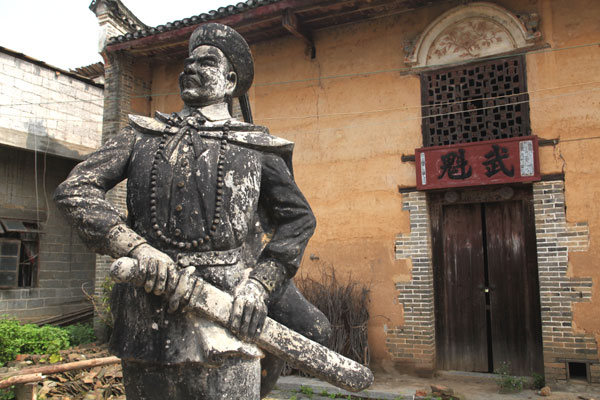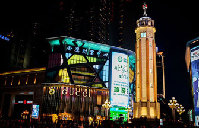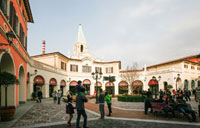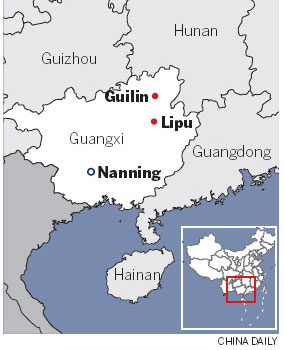Village revels in former glories
 |
|
General Chen Jia's statue found at the village. |
The village covers an area of 4,000 square meters and most of its buildings were built in the Ming Dynasty (1368-1644) and rebuilt in the Qing Dynasty. Most of the buildings, built with mud, gray bricks, wood, and black tiles on solid stone bases, are two-story and have four rooms on the first floor with a big hall in between as a praying site and guest room. The second floor is used as a warehouse to store grain.
Twelve slate lanes divide the residential areas into several parts, each of which is able to defend itself from invaders, with 10 high stone gates built on the lanes as defensive passes.
There are two high walls encircling the village, protecting half the residential area, the other half is protected by the peak.
The outer wall, measuring 6 kilometers, was three meters high and 50 centimeters thick and separated the residential area from the farmland. It was demolished in the "cultural revolution" (1966-76). The inner wall is formed by the gable walls of the houses.
According to the villagers, a squad from the invading Japanese army failed to break into the village after attacking it for four days.
At the outside of the main gate of the inner wall stands a one-meter-high stone pillar, on the four sides of which the village's regulations are carved.
"This is the law of our village since 1810 when the pillar was erected here," says Long Aiting, a 60-year-old villager. "We are united and have lived by the code for generations. It teaches us to be honest, brave, modest and generous."
If you go:The village is one hour by car from Yangshuo, a famous scenic spot in Guilin. The village us free to visit. It takes about two hours to walk around it. Rice noodles, glutinous rice cakes and taro are the local staple foods. Yinziyan karst cave, a national-level scenic spot, is 10 minutes by foot from the village.

















